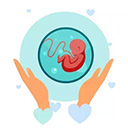
Can Plan B Make You Infertile? The Truth About Emergency Contraception and Fertility
Emergency contraception, like Plan B, is a helpful option for preventing pregnancy after unprotected sex or when your regular birth control fails. But there’s a lot of confusion out there, and one of the biggest questions people ask is: Can Plan B make you infertile?
If you’re worried about how Plan B might affect your ability to have kids in the future, you’re not alone. Many people have this concern, and it’s often fueled by myths and misunderstandings. In this article, we’ll break down the facts, explain the science in simple terms, and clear up any confusion. We’ll also dive deeper than most other articles, covering topics that aren’t always discussed and giving you practical advice to feel confident about your choices.
Whether you’ve taken Plan B before, are thinking about using it, or just want to learn more, this guide is for you. By the end, you’ll know exactly how Plan B works, whether it affects fertility, and what steps you can take to protect your reproductive health.
What Is Plan B and How Does It Work?
Before we tackle the fertility question, let’s make sure we understand what Plan B is and how it works. This will help us see why it does—or doesn’t—affect your ability to get pregnant later.
What Is Plan B?
Plan B is a type of emergency contraception, often called the “morning-after pill.” It’s designed to prevent pregnancy after:
-
- Unprotected sex
-
- A condom breaking or slipping
-
- Forgetting to take your regular birth control pills
-
- Other birth control failures
Plan B contains a hormone called levonorgestrel, which is a synthetic (man-made) version of progesterone, a natural hormone in your body. It’s not the same as the abortion pill—it won’t end an existing pregnancy. Instead, it works to prevent pregnancy from happening in the first place.
How Does Plan B Work?
Plan B works in a few ways, depending on where you are in your menstrual cycle when you take it. Here’s how:
-
- Delays Ovulation: Ovulation is when your ovary releases an egg. Plan B’s main job is to stop or delay this process. If there’s no egg, sperm can’t fertilize it, and pregnancy can’t happen.
-
- Thickens Cervical Mucus: If an egg has already been released, Plan B might make it harder for sperm to reach the egg by thickening the mucus in your cervix (the opening to your uterus).
-
- Does NOT Affect Implantation: Some people think Plan B prevents a fertilized egg from implanting in the uterus, but research shows this isn’t true. Plan B only works before fertilization, not after.
Plan B is most effective when taken as soon as possible after unprotected sex, ideally within 72 hours (3 days). It’s not meant to be used as your regular birth control method—it’s a backup option for emergencies.
Quick Facts About Plan B
✔️ Plan B is safe for most people to use, even multiple times.
✔️ It’s available over the counter without a prescription for anyone, regardless of age.
✔️ It’s not 100% effective, but it can reduce the chance of pregnancy by up to 87% if taken within 72 hours.
❌ Plan B does NOT protect against STDs—you’ll need to use condoms for that.
❌ It’s not the same as the abortion pill—it won’t harm an existing pregnancy.
Does Plan B Affect Your Fertility?
Now, let’s get to the big question: Can Plan B make you infertile? The short answer is no. There’s no scientific evidence that Plan B, even if you take it multiple times, will affect your ability to get pregnant in the future. Let’s break this down step by step.
Why Plan B Does NOT Cause Infertility
Here’s why you don’t need to worry about Plan B affecting your fertility:
-
- It’s a Temporary Hormonal Boost:
Plan B works by giving your body a short burst of hormones to delay ovulation. Once the hormones leave your system (usually within a few days), your body goes back to normal. Your fertility should return to where it was before, just like it does after using other hormonal birth control methods.
- It’s a Temporary Hormonal Boost:
-
- No Damage to Your Reproductive System:
Plan B doesn’t harm your ovaries, fallopian tubes, uterus, or eggs. It doesn’t affect your ability to produce eggs in the future or change how your reproductive organs work.
- No Damage to Your Reproductive System:
-
- Backed by Research:
Studies have consistently shown that emergency contraception, including Plan B, does not have long-term effects on fertility. For example:-
- A study in the journal Contraception found that women who used Plan B had the same chances of getting pregnant later as women who didn’t use it.
-
- Another study in Human Reproduction showed no difference in fertility rates between Plan B users and non-users.
-
- Backed by Research:
-
- No Cumulative Effects:
Some people worry that taking Plan B multiple times could “build up” in your system and cause problems. But the hormones in Plan B are processed and eliminated by your body quickly. Each time you take it, it’s like a one-time event with no lasting impact.
- No Cumulative Effects:
Common Myths About Plan B and Fertility
Even though the science is clear, myths about Plan B and fertility are still out there. Let’s debunk a few of them:
-
- Myth 1: “Plan B can damage your eggs or ovaries.”
-
- Fact: There’s no evidence that Plan B harms your eggs or ovaries. It simply delays ovulation for a short time.
-
- Myth 1: “Plan B can damage your eggs or ovaries.”
-
- Myth 2: “Taking Plan B too many times will make you infertile.”
-
- Fact: You can take Plan B as many times as needed. While it’s not meant to be your regular birth control, using it multiple times won’t affect your future fertility.
-
- Myth 2: “Taking Plan B too many times will make you infertile.”
-
- Myth 3: “Plan B is an abortion pill.”
-
- Fact: Plan B is not an abortion pill. It won’t terminate an existing pregnancy. If you’re already pregnant, taking Plan B won’t harm the pregnancy or affect your fertility later.
-
- Myth 3: “Plan B is an abortion pill.”
-
- Myth 4: “Plan B messes up your hormones forever.”
-
- Fact: Plan B can cause temporary hormonal changes, like a late or heavier period, but these effects are short-lived. Your hormones should return to normal within a month or two.
-
- Myth 4: “Plan B messes up your hormones forever.”
Understanding Fertility: The Basics You Need to Know
To fully understand why Plan B doesn’t cause infertility, it helps to know how fertility works. This will also help you see what does affect fertility and how to protect it.
What Is Fertility?
Fertility is your ability to get pregnant and have a baby. For women, fertility depends on several factors:
-
- Ovulation: Your ovary needs to release a healthy egg each month.
-
- Egg Quality: The egg needs to be healthy enough to be fertilized.
-
- Fallopian Tubes: These tubes need to be open so the egg and sperm can meet.
-
- Uterus: Your uterus needs to be healthy so a fertilized egg can implant and grow.
For men, fertility depends on:
-
- Sperm Production: You need enough healthy sperm.
-
- Sperm Motility: Sperm need to be able to swim to reach the egg.
-
- Sperm Quality: The shape and structure of sperm matter for fertilization.
Infertility can happen if there’s a problem with any of these factors. But Plan B doesn’t affect any of them in a way that would cause long-term issues.
How Hormonal Birth Control Affects Fertility
Plan B is a form of hormonal birth control, similar to regular birth control pills but in a higher dose. Here’s what you need to know about hormonal birth control and fertility:
-
- Temporary Suppression: Hormonal birth control methods (like the pill, patch, or hormonal IUD) temporarily suppress ovulation. When you stop using them, your fertility usually returns quickly.
-
- No Permanent Changes: These methods don’t cause permanent changes to your reproductive system. Once the hormones are out of your system, your body should go back to its natural cycle.
The same principle applies to Plan B. It’s a short-term hormonal intervention that doesn’t have lasting effects.
What the Research Says About Plan B and Fertility
Let’s dive into some of the scientific studies that have looked at Plan B and fertility. These studies give us solid evidence that Plan B is safe for your future fertility.
Study 1: Long-Term Fertility After Emergency Contraception
-
- Published in: Human Reproduction
-
- What They Found: Researchers followed women who had used emergency contraception and compared their fertility rates to women who hadn’t used it. They found no difference—Plan B users were just as likely to get pregnant later.
-
- Conclusion: There’s no evidence that Plan B reduces fertility over time.
Study 2: Multiple Uses of Plan B
-
- Published in: Journal of Obstetrics and Gynaecology
-
- What They Found: This study looked at women who had taken Plan B multiple times. The results showed no difference in their ability to get pregnant compared to women who had never used it.
-
- Conclusion: Taking Plan B multiple times doesn’t affect your future chances of getting pregnant.
Study 3: Hormonal Levels After Plan B
-
- Published in: Contraception
-
- What They Found: Researchers measured hormone levels in women after taking Plan B. They found that hormone levels returned to normal within a few days, and ovulation resumed as expected in the next cycle.
-
- Conclusion: Plan B’s effects on hormones are temporary and don’t cause long-term changes.
These studies, along with many others, consistently show that Plan B does not have a negative impact on future fertility.
Common Concerns and Questions About Plan B
Even with the science on our side, it’s normal to have questions and concerns. Here are some of the most common ones, along with answers to help ease your mind.
1. “I took Plan B, and now my period is late. Does that mean I’m infertile?”
-
- Answer: No, a late period after taking Plan B is common and doesn’t mean you’re infertile. Plan B can temporarily disrupt your menstrual cycle because it affects your hormones. Your period might be:
-
- Late
-
- Early
-
- Heavier or lighter than usual
-
- Answer: No, a late period after taking Plan B is common and doesn’t mean you’re infertile. Plan B can temporarily disrupt your menstrual cycle because it affects your hormones. Your period might be:
This is usually just a short-term side effect, and your cycle should return to normal within a month or two. If your period is more than a week late, take a pregnancy test to rule out pregnancy. If you’re still worried, talk to a doctor.
2. “Can Plan B affect my chances of getting pregnant in the future?”
-
- Answer: No, Plan B won’t affect your future chances of getting pregnant. Once the hormones from Plan B are out of your system, your fertility should be back to normal. Studies show that women who use Plan B can get pregnant later just as easily as women who don’t.
3. “I heard that taking Plan B too many times can mess up your hormones. Is that true?”
-
- Answer: While Plan B can cause temporary hormonal changes (like a late period), these changes are short-lived. Your body processes the hormones quickly, and there’s no evidence that taking Plan B multiple times causes long-term hormonal imbalances. However, Plan B isn’t meant to be your regular birth control—talk to a doctor about other options if you need emergency contraception often.
4. “Does Plan B affect male fertility?”
-
- Answer: Plan B is designed for women and doesn’t affect male fertility. It’s a hormonal pill that works on the female reproductive system, so it has no impact on sperm production or quality.
5. “Can Plan B cause birth defects if I get pregnant later?”
-
- Answer: No, there’s no evidence that Plan B causes birth defects. If you take Plan B and later get pregnant, it won’t harm the pregnancy or the baby. Plan B only works before fertilization, so it doesn’t affect a developing pregnancy.
Topics Other Articles Miss: Deeper Insights Into Plan B and Fertility
Most articles about Plan B and fertility cover the basics, but there are some important topics that don’t get enough attention. Let’s dive into these to give you a fuller picture.
Does Plan B Affect Your Menstrual Cycle Long-Term?
Plan B can cause short-term changes to your menstrual cycle, like a late or irregular period. But what about long-term effects? Here’s what you need to know:
-
- Short-Term Changes Are Normal: After taking Plan B, your next period might be delayed by a few days or even a week. This happens because the hormones in Plan B can throw off your cycle temporarily.
-
- Long-Term Effects Are Rare: For most people, their cycle goes back to normal within one or two months. There’s no evidence that Plan B causes long-term changes to your menstrual cycle or ovulation.
-
- When to See a Doctor: If your periods stay irregular for more than two months after taking Plan B, talk to a doctor. This could be a sign of an underlying issue, like stress, PCOS, or thyroid problems—not Plan B itself.
Can Plan B Affect Your Chances of Ectopic Pregnancy?
An ectopic pregnancy is when a fertilized egg implants outside the uterus, usually in the fallopian tube. It’s a rare but serious condition. Some people worry that Plan B could increase the risk of ectopic pregnancy, but here’s what the research says:
-
- No Increased Risk: Studies show that Plan B does not increase the risk of ectopic pregnancy. If you get pregnant after taking Plan B, the chance of it being ectopic is the same as if you hadn’t taken it.
-
- Signs to Watch For: If you have severe lower abdominal pain, unusual bleeding, or feel faint after taking Plan B and suspect you might be pregnant, see a doctor right away. These could be signs of an ectopic pregnancy, but they’re not caused by Plan B.
Does Plan B Interact With Other Medications or Conditions?
Most articles don’t talk about how Plan B might interact with other medications or health conditions. Here’s what you should know:
-
- Medications That May Reduce Effectiveness: Certain medications can make Plan B less effective, including:
-
- Some anti-seizure drugs (like phenytoin or carbamazepine)
-
- Some HIV medications
-
- St. John’s Wort (an herbal supplement)
If you’re taking any of these, talk to a doctor about whether Plan B is the best option for emergency contraception.
- St. John’s Wort (an herbal supplement)
-
- Medications That May Reduce Effectiveness: Certain medications can make Plan B less effective, including:
-
- Health Conditions to Consider: Plan B is generally safe for most people, but talk to a doctor if you have:
-
- Severe liver disease
-
- Uncontrolled high blood pressure
-
- A history of blood clots
These conditions don’t necessarily mean you can’t take Plan B, but your doctor can help you weigh the risks and benefits.
- A history of blood clots
-
- Health Conditions to Consider: Plan B is generally safe for most people, but talk to a doctor if you have:
How to Protect Your Fertility
While Plan B doesn’t cause infertility, there are other factors that can affect your ability to get pregnant. Here are some practical tips to help protect your fertility, whether or not you’ve taken Plan B.
Tips for Women
✔️ Avoid Smoking: Smoking can damage your eggs and reduce your fertility.
✔️ Maintain a Healthy Weight: Being underweight or overweight can affect ovulation. Aim for a balanced diet and regular exercise.
✔️ Limit Alcohol: Heavy drinking can disrupt your menstrual cycle and hormone levels.
✔️ Manage Stress: High stress levels can interfere with ovulation. Try relaxation techniques like yoga, meditation, or talking to a therapist.
✔️ Get Regular Checkups: Conditions like endometriosis, PCOS, or untreated STDs can affect fertility. Regular checkups can catch these early and get them treated.
Tips for Men
✔️ Avoid Smoking and Drugs: These can reduce sperm quality and count.
✔️ Limit Alcohol: Excessive drinking can lower testosterone levels and affect sperm production.
✔️ Stay Cool: High temperatures (like from hot tubs, saunas, or tight clothing) can reduce sperm production. Keep things cool down there.
✔️ Eat a Balanced Diet: Nutrients like zinc, vitamin C, and omega-3s are important for sperm health.
✔️ Exercise Regularly: Regular physical activity can boost testosterone levels and improve sperm quality.
Quick Guide: Fertility-Friendly Lifestyle
| Do This ✔️ | Avoid This ❌ |
|---|---|
| Eat fruits, veggies, and whole grains | Smoking and recreational drugs |
| Exercise regularly | Excessive alcohol |
| Manage stress | Extreme weight loss or gain |
| Get enough sleep | High heat (hot tubs, tight underwear) |
| See your doctor regularly | Untreated STDs |
When to See a Doctor
If you’re worried about your fertility, whether or not you’ve taken Plan B, it’s always a good idea to talk to a doctor. Here are some signs that it might be time to seek medical advice:
-
- Irregular Periods: If your periods are consistently irregular or absent, it could be a sign of an underlying issue like PCOS or thyroid problems.
-
- Painful Periods: Severe pain during your period could indicate conditions like endometriosis, which can affect fertility.
-
- Difficulty Getting Pregnant: If you’ve been trying to conceive for a year (or six months if you’re over 35) without success, see a fertility specialist.
-
- History of STDs: Some sexually transmitted infections, like chlamydia or gonorrhea, can affect fertility if left untreated.
-
- Other Concerns: If you have a history of pelvic surgery, cancer treatment, or other health issues, talk to a doctor about how they might affect your fertility.
Remember, taking Plan B shouldn’t be a reason to worry about your fertility. But if you have other concerns, don’t hesitate to get professional advice.
Interactive Section: Your Questions Answered
We know that fertility and emergency contraception can be confusing topics, so we’ve created this space for you to ask your questions. Leave a comment below with any questions or concerns you have about Plan B and fertility, and we’ll do our best to answer them. Here are a few prompts to get you started:
-
- Have you ever taken Plan B? What was your experience like?
-
- Do you have any lingering worries about how Plan B might affect your fertility?
-
- What other questions do you have about emergency contraception?
-
- Are there myths about Plan B you’ve heard that you’d like us to debunk?
Your questions and stories can help others who might be in the same situation, so don’t be shy! Sharing your thoughts can also help us create more content that answers your specific concerns.
Conclusion
To wrap it up, Plan B is a safe and effective way to prevent pregnancy after unprotected sex, and it does not cause infertility. The science is clear: Plan B works by temporarily delaying ovulation, and once the hormones are out of your system, your fertility returns to normal. Myths about Plan B damaging your eggs, causing long-term hormonal imbalances, or affecting future pregnancies are just that—myths.
If you’re ever in a situation where you need emergency contraception, you can take Plan B without worrying about your future ability to have children. And if you have any concerns about your fertility, whether related to Plan B or not, don’t hesitate to talk to a healthcare provider. They can help address any underlying issues and give you personalized advice.
Remember, your reproductive health is important, and it’s always okay to ask questions and seek out reliable information. We hope this article has helped clear up any confusion and given you the facts you need to make informed decisions. If you found this helpful, share it with someone who might need it—and don’t forget to leave your questions or experiences in the comments below!







